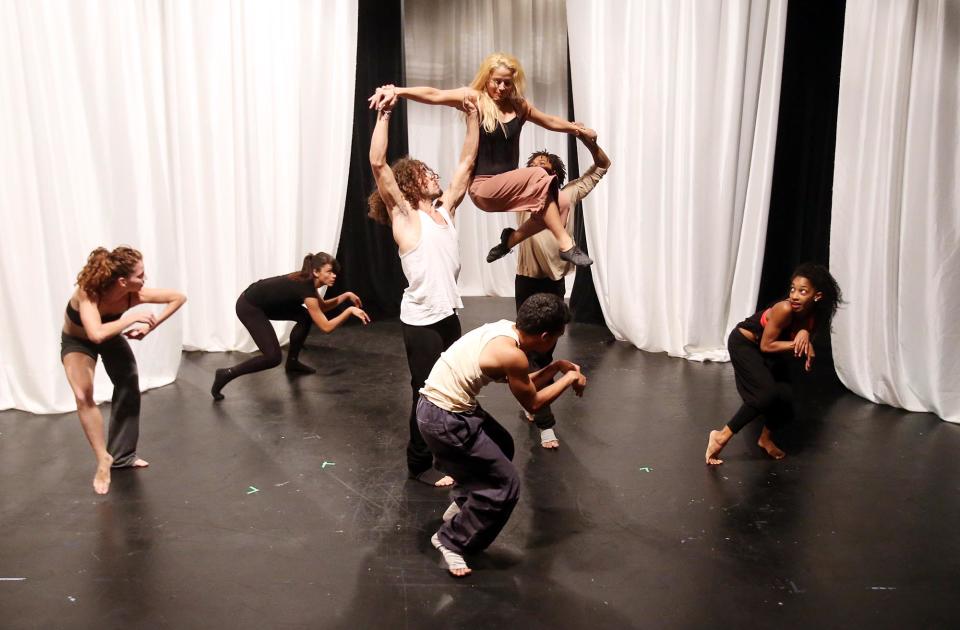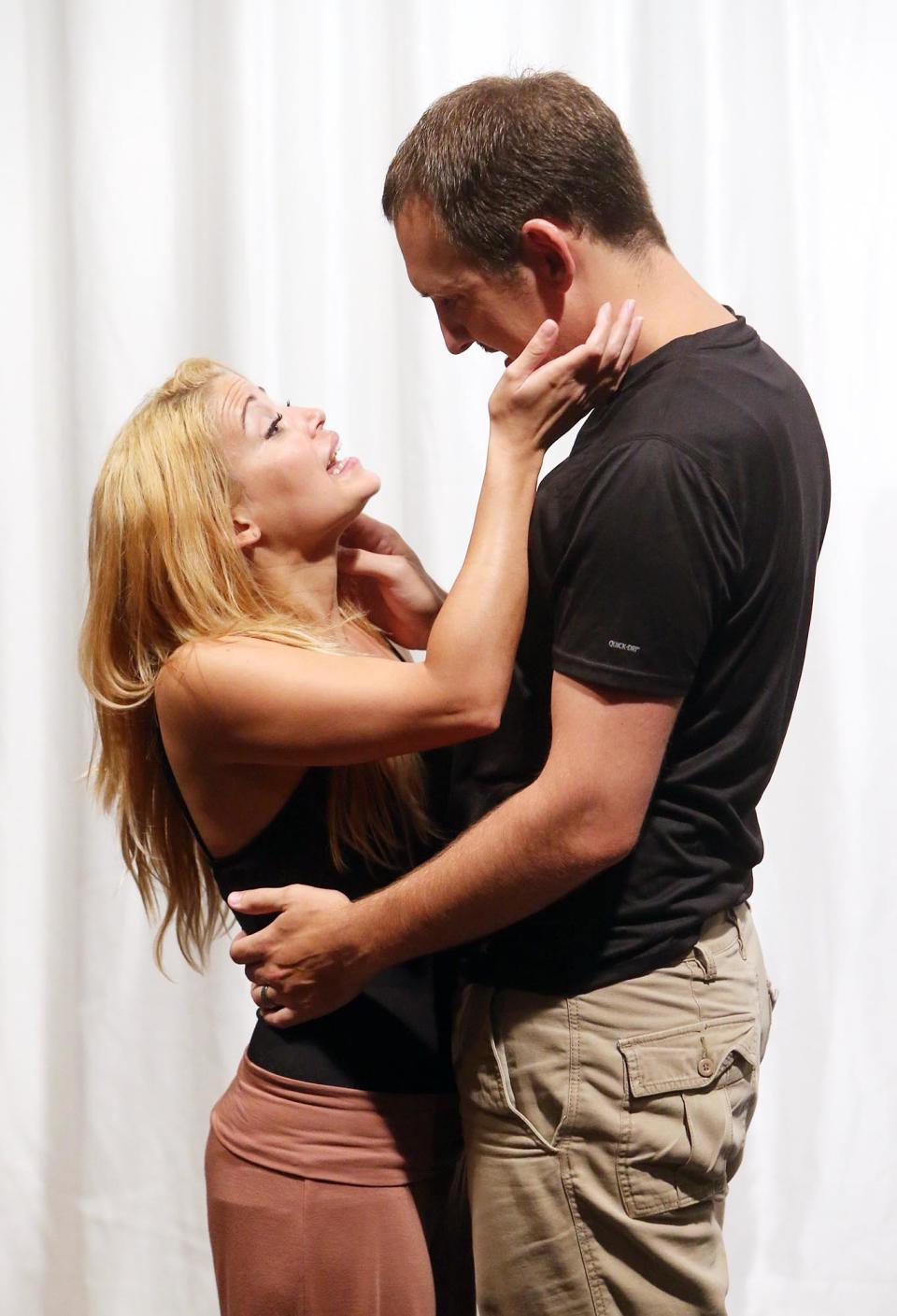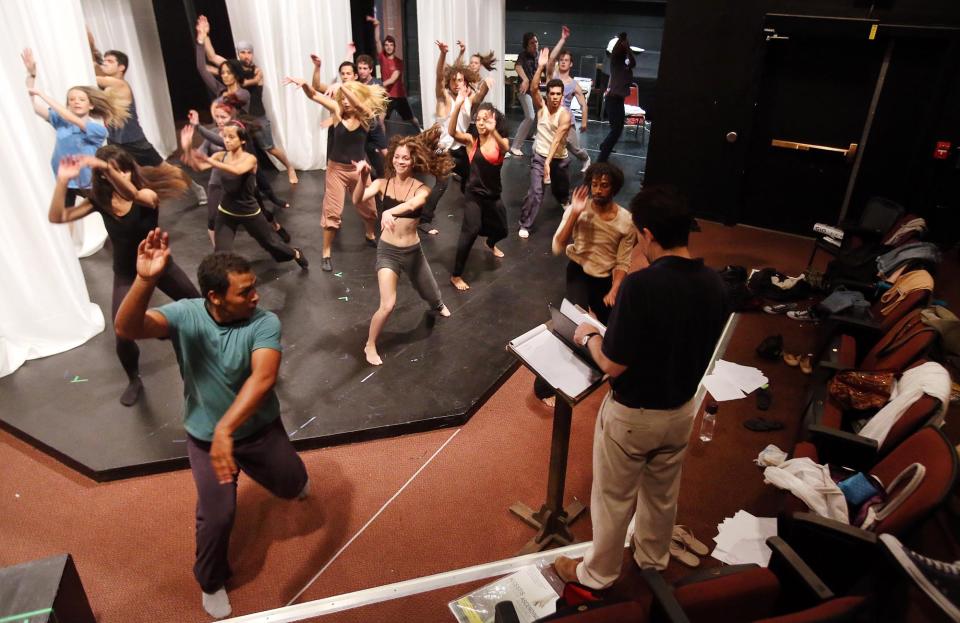Cuban-American troupe to perform in NY, Havana
TUSCALOOSA, Ala. (AP) — It's difficult enough for actors to perform a play in two languages and make sure the audience understands, but an Alabama-based partnership of Cubans and Americans is tackling that and more with an unusual engagement in New York.
The cast and crew of "Alcestis Ascending" are preparing for one of just a handful of joint Cuban-American plays to hit the Big Apple since the Cuban revolution and Fidel Castro's rise to power in 1959.
The performance is a collaboration between the University of Alabama and the Cuban National Office of Scenic Arts. A cast of 15 Cubans and eight Americans will perform at the off-Broadway Clurman Theatre beginning July 9.
The play, an adaptation of the Greek playwright Euripides' drama "Alcestis," was written and directed by Seth Panitch, the head of acting programs at the University of Alabama. William Ruiz, from Cuba, is the co-director.
The production presents some unusual challenges, such as incorporating rock music and dance into a classical tale while not confusing the audience with dialogue in both Spanish and English.
"Half the play is in English and half the play is in Spanish, so either everyone will be able to understand what is going on or no one will be able to follow what's going on," Panitch said.
The troupe rehearsed in Tuscaloosa before an opening run in a small theater at the University of Alabama. The play is set to debut there July 1, and after wrapping in New York, it will head to Havana.
Ruiz, who is associated with El Consejo Nacional De Artes Escenicas in Havana, said the Cubans and Americans are anxious to take the play on the road, particularly to New York.
"It's very exciting to go there as a joint American-Cuban company because in the end it's going to talk about relations between people," he said. "To do it in New York, I think, is perfect."
The actors can't talk politics or cultural differences very much — language limitations prevent such discussions — but Ruiz said the barriers are gone on stage. "The play becomes the language," he said.
As a bonus, the Cubans get to see a slice of American that many in their culture only dream of. New cars are everywhere instead of the 1950s models so common in Cuba, and store shelves are packed with food and clothes.
Many cast members are thrilled just by the chance to get to see New York. "It is a center for theater," Ruiz said.
The play is a production of Company HavanaBama, a research project that has linked Alabama's College of Arts and Sciences with Cuban actors and agencies since 2007.
The Cuban Ministry of Culture said "Alcestis Ascending" is the first licensed production with both Cuban and American actors to perform in New York. Most contact between the countries is banned because of U.S. embargoes.
Lillian Manzor, an expert in Cuban theater at the University of Miami, said just a few joint productions have been performed in the United States under various arrangements since the Castro regime took power. She said "Alcestis Ascending" is a "very important co-production" because of that rarity.
Sage Lewis, a Los Angeles-based composer who has worked with U.S.-Cuban collaborations for nearly a decade, produced a play in the United States using American actors on stage and Cubans who appeared by video link. He's unaware of exchanges similar to the one that will travel to New York.
"It's definitely an important project," he said of the Alabama-based production. "They're pioneering and doing new things in new ways."
The Alabama partnership opened an era in U.S.-Cuban relations in 2009 when 12 Cuban actors and crew members came to the state to perform a Spanish-language version of Shakespeare's "A Midsummer Night's Dream" with American actors. The Obama administration's decision to let the Cubans into the country was seen as a new step in openness toward the Communist-ruled island nation, and Lewis said additional exchanges began in 2010.
Panitch said special writing and directing techniques are required to present a play in two languages for an audience that might understand only one tongue.
"You have to figure out which partners on stage work well with sharing that dialogue, how much repetition I want to use. ... Sometime important plot points are in Spanish so I have to make sure that there's a repetition in English," he said. "And likewise, when we go down to Havana, I have to make sure there's enough repetition in Spanish that a Spanish-speaking audience understands what's going on as well."



